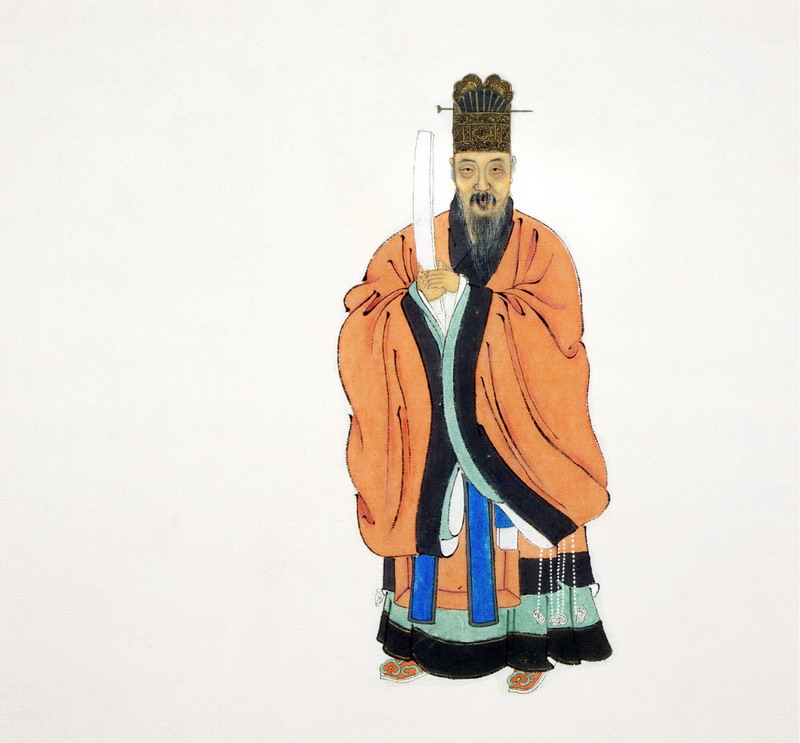Xu Jie
 Xu Jie (1503–1583), courtesy name Zisheng, art names Shaohu and Cunzai, was a Chinese scholar-official during the Ming dynasty. He held a high position in the court of the Jiajing Emperor in the mid-16th century, serving as minister of rites from 1549 to 1552, and later as grand secretary and head of the Grand Secretariat from 1562 to 1568.
Xu Jie (1503–1583), courtesy name Zisheng, art names Shaohu and Cunzai, was a Chinese scholar-official during the Ming dynasty. He held a high position in the court of the Jiajing Emperor in the mid-16th century, serving as minister of rites from 1549 to 1552, and later as grand secretary and head of the Grand Secretariat from 1562 to 1568.Xu came from a modest family, relying on the income from a silk factory. His father held lower-level official positions, but prioritized his son's education in Confucianism, which ultimately proved to be a wise investment for the family. Xu Jie excelled in the civil service examinations, achieving the highest level, the palace examination, at the age of 20 in 1523. He was accepted into the Hanlin Academy, and unlike many of his colleagues, he avoided being caught up in the purges during the Great Rites Controversy between the Jiajing Emperor and the government. In 1524, he chose to stay at home to mourn his father's death, which spared him from any potential consequences. In 1530, he openly opposed the emperor and the government's proposed reforms in the ceremonies associated with the veneration of Confucius. As a result, he was sent to the remote mountainous prefecture of Yanping in the southern Chinese province of Fujian to serve as a judge. After a few years, he was promoted to the position of education intendant in Zhejiang and then in Jiangxi. In 1539, he was transferred back to Beijing to the Hanlin Academy, and in 1541, he became the head of the Imperial University. In late 1544, he was appointed as the vice minister of rites, and from early 1545, he served as the vice minister of personnel for four years.
Xu was not only a philosophical and ethical thinker, but also actively participated in organizing the ''jiangxue'' debates on Confucian studies and moral self-improvement. In addition to his interest in philosophy and personal growth, he prioritized establishing connections and building relationships with other participants in the discussions. He strategically utilized these friendships and connections for political support. He was known for his efficient management skills and attention to bureaucratic details, as well as his ability to navigate power dynamics and take advantage of opportunities. As a young official, he was known for his energy and strong convictions, even when they went against the government and the emperor. However, as he matured as a politician, he became more cautious and prioritized fulfilling the emperor's wishes. Nevertheless, he was not afraid to make quick and decisive decisions when necessary. He leveraged his high political positions to accumulate significant wealth, becoming one of the largest landowners in Jiangnan, the most economically developed region of China. After leaving office, he faced attacks from his political adversaries, but thanks to the support of Grand Secretary Zhang Juzheng, his family was spared severe punishment and the confiscation of their property. Provided by Wikipedia

